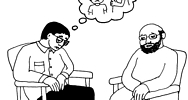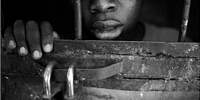|
|
 Acne (1,500) Acne (1,500)
 Addictions (1,500) Addictions (1,500)
 Advice (1,500) Advice (1,500)
 Allergies (1,092) Allergies (1,092)
 Alternative Medicine (1,500) Alternative Medicine (1,500)
 Anti Aging (1,500) Anti Aging (1,500)
 Breakup (1,500) Breakup (1,500)
 Cancer (1,499) Cancer (1,499)
 Dental Care (1,500) Dental Care (1,500)
 Disabilities (1,500) Disabilities (1,500)
 Divorce (1,500) Divorce (1,500)
 Elderly Care (1,498) Elderly Care (1,498)
 Goal Setting (1,500) Goal Setting (1,500)
 Hair Loss (1,500) Hair Loss (1,500)
 Health and Safety (1,497) Health and Safety (1,497)
 Hearing (1,500) Hearing (1,500)
 Law of Attraction (1,499) Law of Attraction (1,499)
 Marriage (1,500) Marriage (1,500)
 Medicine (1,497) Medicine (1,497)
 Meditation (1,499) Meditation (1,499)
 Men's Health (1,500) Men's Health (1,500)
 Mental Health (1,500) Mental Health (1,500)
 Motivational (1,500) Motivational (1,500)
 Nutrition (1,495) Nutrition (1,495)
 Personal Injury (1,499) Personal Injury (1,499)
 Plastic Surgeries (1,500) Plastic Surgeries (1,500)
 Pregnancy (1,496) Pregnancy (1,496)
 Psychology (1,500) Psychology (1,500)
 Public Speaking (1,500) Public Speaking (1,500)
 Quit Smoking (1,500) Quit Smoking (1,500)
 Religion (1,499) Religion (1,499)
 Self Help (1,500) Self Help (1,500)
 Skin Care (1,500) Skin Care (1,500)
 Sleep (1,500) Sleep (1,500)
 Stress Management (1,500) Stress Management (1,500)
 Teenagers (1,492) Teenagers (1,492)
 Time Management (1,500) Time Management (1,500)
 Weddings (1,500) Weddings (1,500)
 Wellness (1,500) Wellness (1,500)
 Women's Health (1,500) Women's Health (1,500)
 Women's Issues (1,500) Women's Issues (1,500)
|
Hasan A. Yahya, Ph.D Personality disorder: A disorder characterized by the chronic use of mechanisms of coping in an inappropriate, stereotyped, and maladaptive manner. Personality disorders are enduring and persistent styles of behavior and thought, not atypical episodes. The personality disorders encompass a group of behavioral disorders that are different and distinct from the psychotic and neurotic disorders. The official psychiatric manual, the DSM-IV (Diagnostic and Statistical Manual of the American Psychiatric Association, Fourth Edition), defines a personality disorder as an enduring pattern of inner experience and behavior that differs markedly from the expectations of the individual's culture, is pervasive and inflexible, has an onset in adolescence or early adulthood, is stable over time, and leads to distress or impairment. Personality disorders are a long-standing and maladaptive pattern of perceiving and responding to other people and to stressful circumstances. There are ten personality disorders, grouped into 3 clusters, are defined in the DSM-IV: Cluster A. Odd or eccentric behavior., Paranoid personality disorder .Schizoid personality disorder Cluster B. Dramatic, emotional or erratic behavior. Antisocial personality disorder .Borderline Personality disorder . Histrionic personality disorder . Narcissistic personality disorder Cluster C. Anxious fearful behavior. Avoidant personality disorder. Dependent personality disorder . Obsessive-compulsive personality. Personality and Intelligence Intelligence influences different aspects of personality in many different ways. In fact, intelligence is sometimes considered to be part of personality. This issue will probably always be debated. The main point to bear in mind is that both intelligence and personality are prominent individual differences. Personality is not easily defined. Though, ‘personality’ refers to our attempts to capture or summarize an individual’s ‘essence’. Personality is person-ality, the science of describing and understanding persons. Clearly, personality is a core area of study for psychology, if not the core. Together with intelligence, the topic of personality constitutes the most significant area of individual difference study. No two people are exactly the same - not even identical twins. Some people are anxious, some are risk-taking; some are phlegmatic, some highly-strung; some are confident, some shy; and some are quiet and some are loquacious. This issue of differences is fundamental to the study of personality. Note also that in studying these differences we will also examine where the differences come from: as with intelligence we will find that there is a mixture of nature and nurture involved.
|
|
|



